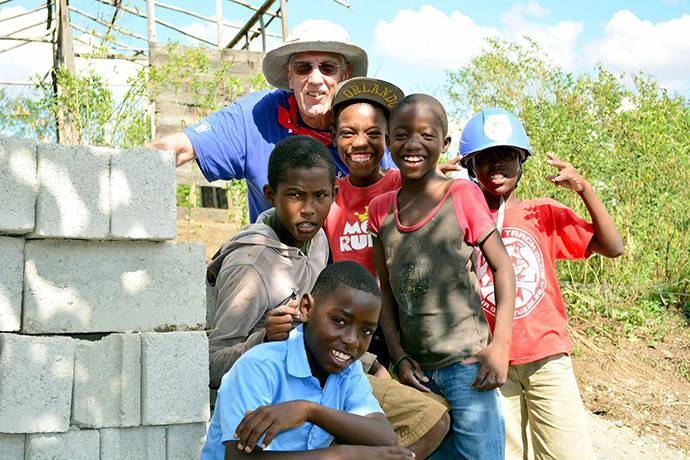 Participating in an international service project can be a major life experience. No matter where you are traveling or whether you’re a first-timer or a well-seasoned participant, the experience will most certainly open your eyes to the realities of how others live. The following are tips that will help you get the most out of your service project, from start to finish.
Participating in an international service project can be a major life experience. No matter where you are traveling or whether you’re a first-timer or a well-seasoned participant, the experience will most certainly open your eyes to the realities of how others live. The following are tips that will help you get the most out of your service project, from start to finish.
Pre-departure preparation
- Know why you are going. Make plans based on your main motivation and think about how you can support some of your secondary motivations.
- Read about where you are going and its people. Look for a genre that you like so that you stick with a book.
- Follow blogs. Someone is probably writing about the country you are visiting — maybe even the city or village you will visit — and the issues you will address while there.
- Know where exactly you are going geographically. Get a map and a travel book.
- Learn how the country’s people are represented in your home community. What brought them there and how are they doing?
- Cook their foods. Get to know the people you will be visiting through the foods they eat.
- Start to journal. You will pick up on themes throughout the entire experience.
- Watch for news, sign up for Google alerts. Make sure to keep abreast of news happening in the region you will visit.
On-site tips
- Smile! If you are unfamiliar with the local language, make sure to smile a lot. A smile goes a long way.
- Language — “Learn a little, use it a lot.” When you learn to say hello, say hello to everyone. Once you feel comfortable, learn another phrase and wear it out.
- Don’t be all work and no play. Hang with the locals — eat mangos with kids under a tree, cook Naan with women, make fire cakes out of cow dung, carry firewood and water.
- Try to fit in with the dress. Many cultures are much more formal than the U.S. If they don’t wear shorts, don’t wear shorts.
- Show the locals your photos. They will probably love seeing themselves on the screen!
- Have an open heart and an open mind. This may be painful at times.
- Be open to being surprised by what you might learn, how things could be different, how you might be touched.
- Be a learner. Learn to make tortillas, try to carry the heavy load, learn basic greetings from someone you are working with.
- Be aware of your cultural lens. Think about what you are seeing as the “tip of the iceberg.” Getting to the deeper roots of a situation may be more difficult than you think.
Things to consider
- Do not bring extra “stuff” for locals (soccer balls, t-shirts, old computers, candy). People often think they need to bring something but the host organization will know what is appropriate. Extra “giveaways” can actually be more harmful than good.
- Do not make any unrealistic commitments (I’ll write when I get back, I will send money). All of these may seem easy and appropriate at the time, but your hosts will cling on to them and could be hurt if you cannot follow through.
A few cautions
- Be careful when reading U.S. State Department advisories as they often reflect a general state of a country and may not reflect the actual area you will be working in. Clarify any concerns with your local contact.
- Be discriminate about travel guidelines. Be especially careful if you don’t know the language or culture.
When you return
- Cook the foods. See if you can replicate anything you ate while in the country.
- Reread books and articles. Stay abreast of any news links you were reading prior to the trip and add new ones you learned about while traveling.
- Tell team members and others about your experience!
An international service project can propel you into an exciting journey of ongoing participation in helping to create a more just, sustainable and peaceful world for all to live in. Make sure you do it right!